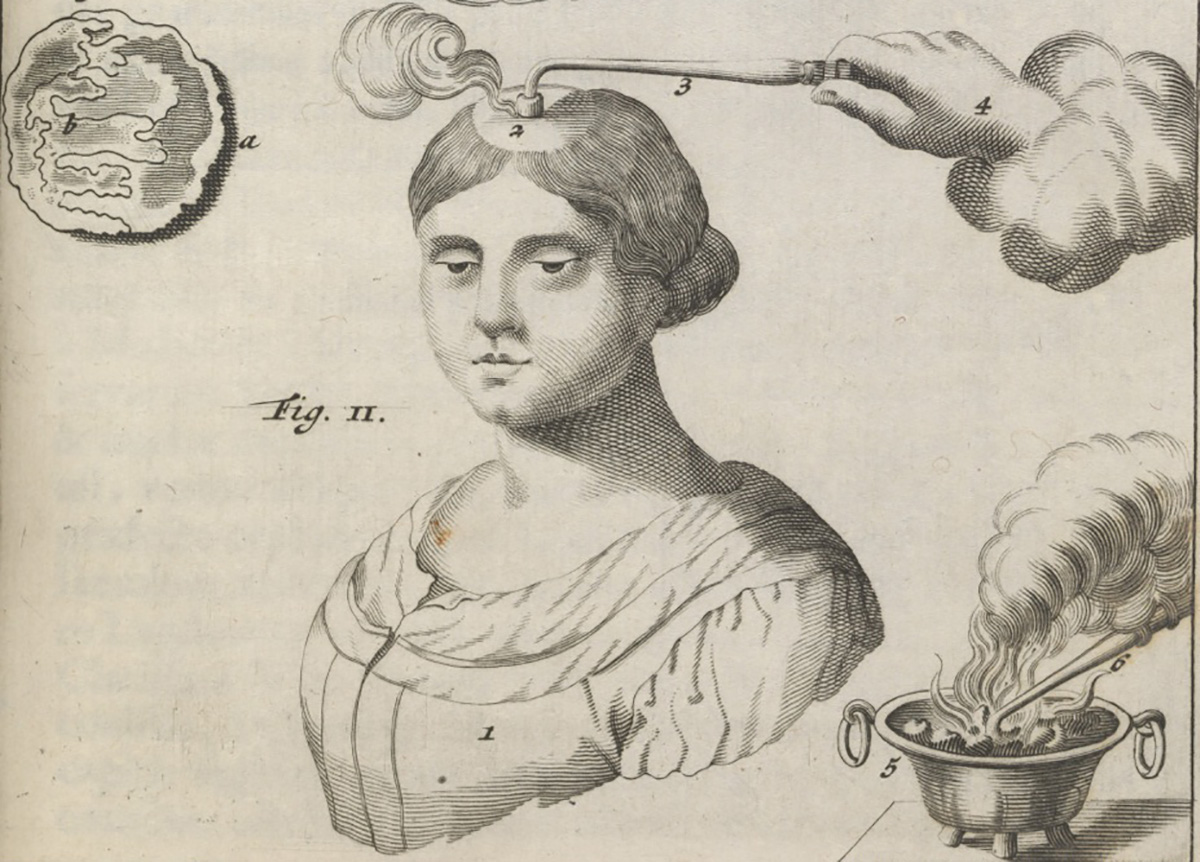Travel Back to the Dawn of Health and Science in Boston

Image courtesy of Wellcome Library, London
Did you know that the Old State House used to be among the most infectious places in Boston? How about why midwives were once accused of bringing “monsters” into the world? Could you name the botanicals used long before the advent of modern medicine?
You’ll learn these tidbits of knowledge, and many more, when the Partnership of Historic Bostons puts on Medicine and Mortality in 17th-Century Boston this fall. The event series is part of the group’s annual Boston Charter Day celebrations, which pay homage to the naming of Boston, Dorchester, and Watertown way back in 1630. In addition to annual Charter Day festivities, the organization hosts a variety of informative activities fixed on a common theme—which, this year, is medicine in 1600s Boston.
“When we think about medical care, we think about medical care in our terms,” says Partnership of Historic Bostons President Rose Doherty. “[In the 17th century,] the scientific revolution hadn’t really happened yet. You had people still believing in witches and believing in the four humors. There was no organized medicine, in the way that we understand it.”
You’ll have a chance to travel back to those early days of science when Medicine and Mortality kicks off on September 13. (It continues through October 3.) Highlights from the lineup of free events include:
- Monstrous Births, Powerful Midwives: Women as Healers in Puritan Boston: On September 13 at the Boston Public Library, historian Eve LaPlante will pull back the curtain on midwives in 17th century Boston. While women were powerless in public, Doherty says, they were “in charge of those moments of great importance to the individual, at birth or at death.” But with great power comes great responsibility: Midwives were frequently blamed and accused of colluding with the devil when babies were born with birth defects, and when mothers or infants died in childbirth. Register to learn more here.
- Privies and Peach Pits: Public Health in Puritan Boston: The things Puritans left behind—from their possessions to their remains—offer clues for historians. This September 27 session at the New England Historic Genealogical Society will reveal the roots of public health in Boston, and discuss how ongoing archaeological discovery helps illuminate the lives and deaths of our long-gone ancestors. Register here.
- When There Is No Doctor: Home Remedies of 17th-Century Boston: Back in the day, “There was no CVS to go to. There was no HMO to go to,” Doherty says. That means Bostonians had to get crafty. Housewives often took on the role of healer, using natural and botanical ingredients—and sometimes magic and astrology—to treat illnesses in the home. Lori Lyn Price, an expert in botanical domestic medicine, will give you the scoop on October 3 at Old North Church. Register here.
There are plenty of other events on the docket, from a medical walking tour—which is currently sold out, but may be expanded into a second session—to a talk on disease, science, and religion in the Puritan world. You can see the full lineup here.
As for which ones you should attend? “That’s like asking me my favorite child,” Doherty says.
Free, 9/13-10/3. Various locations. Register at eventbrite.com.


